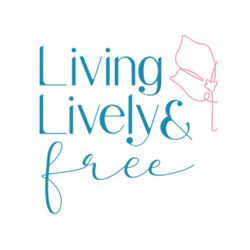For many women, hormone replacement therapy (HRT) can be a powerful tool in managing perimenopause and menopause symptoms—helping to reduce hot flashes, improve sleep, boost mood, and protect bone health. But research shows that drinking alcohol while on HRT significantly increases health risks, particularly breast cancer, blood clots, and reduced treatment effectiveness.
Here’s what every woman on HRT needs to know about alcohol’s impact on hormone balance, metabolism, and long-term health.
Alcohol & HRT Combined Can Triple or Even Quintuple Breast Cancer Risk
A large Danish study followed over 5,000 postmenopausal women for 20 years and found that:
🔹 Women who drank alcohol but did NOT take HRT had no significant increase in breast cancer risk.
🔹 Women on HRT who drank 1-2 drinks per day had a breast cancer risk 3 times higher than women who neither drank nor took HRT.
🔹 Women on HRT who drank more than 2 drinks per day had a breast cancer risk 5 times higher than women who neither drank nor took HRT.
The reason? Alcohol raises estrogen levels, and when combined with the estrogen in HRT, it can create a dangerous hormonal overload that fuels the growth of breast cancer cells.
🔹 The Risk: If you’re taking HRT, drinking alcohol drastically increases your risk of developing breast cancer.
Alcohol Makes HRT Less Effective
HRT is designed to rebalance hormones and relieve menopause symptoms—but alcohol disrupts hormone metabolism, reducing its effectiveness.
- The liver is responsible for processing both alcohol and hormones, but when alcohol is present, the liver prioritizes breaking down alcohol first.
- This means HRT hormones don’t get metabolized properly, making them less effective at relieving menopause symptoms like hot flashes, insomnia, and mood swings.
🔹 The Risk: If you’re drinking while on HRT, you may still struggle with sleep issues, anxiety, and other symptoms because your hormones aren’t being processed efficiently.
Higher Risk of Blood Clots & Stroke
- Both HRT and alcohol increase blood clotting factors, making the risk of deep vein thrombosis (DVT), pulmonary embolism, and stroke even higher.
- Alcohol also raises blood pressure, which further increases the stroke risk associated with HRT.
- Women who smoke, have high cholesterol, or are overweight face an even greater risk when combining alcohol with HRT.
🔹 The Risk: Drinking while on HRT can put you at a higher risk for blood clots, stroke, and heart complications.
Alcohol Worsens Menopause Symptoms
HRT is meant to reduce menopause symptoms, but alcohol can actually make them worse:
- More hot flashes & night sweats (Alcohol widens blood vessels, worsening heat surges.)
- Worsened anxiety & depression (Alcohol depletes serotonin and GABA, making mood swings more intense.)
- Poorer sleep quality (Alcohol reduces REM sleep, leading to more night wakings.)
- Increased brain fog & sluggishness (Alcohol disrupts cognitive function and depletes key nutrients.)
- The Risk: Drinking can undo the benefits of HRT, making symptoms worse, not better.
Alcohol Weakens Bone Health & Increases Osteoporosis Risk
One of the biggest benefits of HRT is its ability to protect against osteoporosis, but alcohol counteracts these benefits by:
- Weakening bones and reducing calcium absorption.
- Increasing inflammation, which accelerates bone loss.
- Raising the risk of fractures and poor bone healing.
🔹 The Risk: Women on HRT who drink regularly may still experience bone loss and an increased risk of fractures despite taking hormones.
Increased Liver Strain & Hormonal Imbalance
- The liver is responsible for processing both alcohol and hormones, but when alcohol is present, the liver prioritizes breaking down alcohol first.
- This can lead to a buildup of excess estrogen in the body, increasing the risk of hormonal imbalances and toxicity.
- Over time, this strain on the liver can lead to fatty liver disease, making it even harder to process both hormones and alcohol efficiently.
🔹 The Risk: Drinking while on HRT puts extra stress on your liver, leading to hormonal imbalances, fatigue, and inflammation
Alcohol & Heart Health – A Dangerous Combination
- HRT is often prescribed to support heart health, but alcohol increases blood pressure and cholesterol, putting more strain on the heart.
- Alcohol raises inflammation in the blood vessels, making heart disease more likely over time.
🔹 The Risk: Women on HRT who drink are at higher risk for heart disease, hypertension, and cardiovascular complications.
The Bottom Line: Alcohol & HRT Don’t Mix
If you’re taking HRT to balance your hormones, relieve symptoms, and protect your long-term health, alcohol is working against you.
- Reducing or eliminating alcohol can:
- Make HRT more effective—helping you truly feel the benefits.
- Lower your risk of breast cancer, blood clots, and heart disease.
- Improve sleep, mood, and overall well-being.
- Support liver health and allow for proper hormone metabolism.
- Help you feel clearer, calmer, and more in control of your body.
For many women, the body starts rejecting alcohol during menopause—hot flashes get worse, sleep is disrupted, and the effects linger longer than they used to. If you’re on HRT (or considering it), cutting back on alcohol is one of the best things you can do to support your body’s natural balance.
Working with me to change your relationship with alcohol isn’t just about breaking the cycle—it’s about helping your body do what it’s meant to do, especially if you’re on HRT.
You’re taking HRT to balance your hormones, relieve symptoms, and protect your long-term health, but alcohol is working against those goals by:
- Disrupting hormone metabolism—making HRT less effective
- Worsening menopause symptoms like hot flashes, night sweats, and mood swings
- Interfering with sleep and increasing anxiety—undoing one of the key benefits of HRT
- Raising estrogen levels dangerously high, which can increase breast cancer risk
- Straining the liver, making it harder to process both alcohol and hormones efficiently
- Increasing the risk of blood clots, stroke, and heart disease, especially when combined with HRT
By reducing or eliminating alcohol, you allow HRT to work the way it’s designed to—without interference.
When we work together, I’ll help you:
- Rewire your brain so alcohol stops feeling necessary
- Eliminate the mental battle of “should I or shouldn’t I?”
- Improve sleep, reduce anxiety, and feel more energized every day
- Give your body the best chance to absorb and metabolize HRT properly
- Support long-term health—protecting your heart, bones, and hormonal balance
This isn’t just about quitting drinking—it’s about stepping into midlife feeling your best.
Imagine waking up clear-headed, well-rested, and fully in control—without alcohol holding you back. If you’re ready to take that step, let’s talk.
Your future self will thank you.


